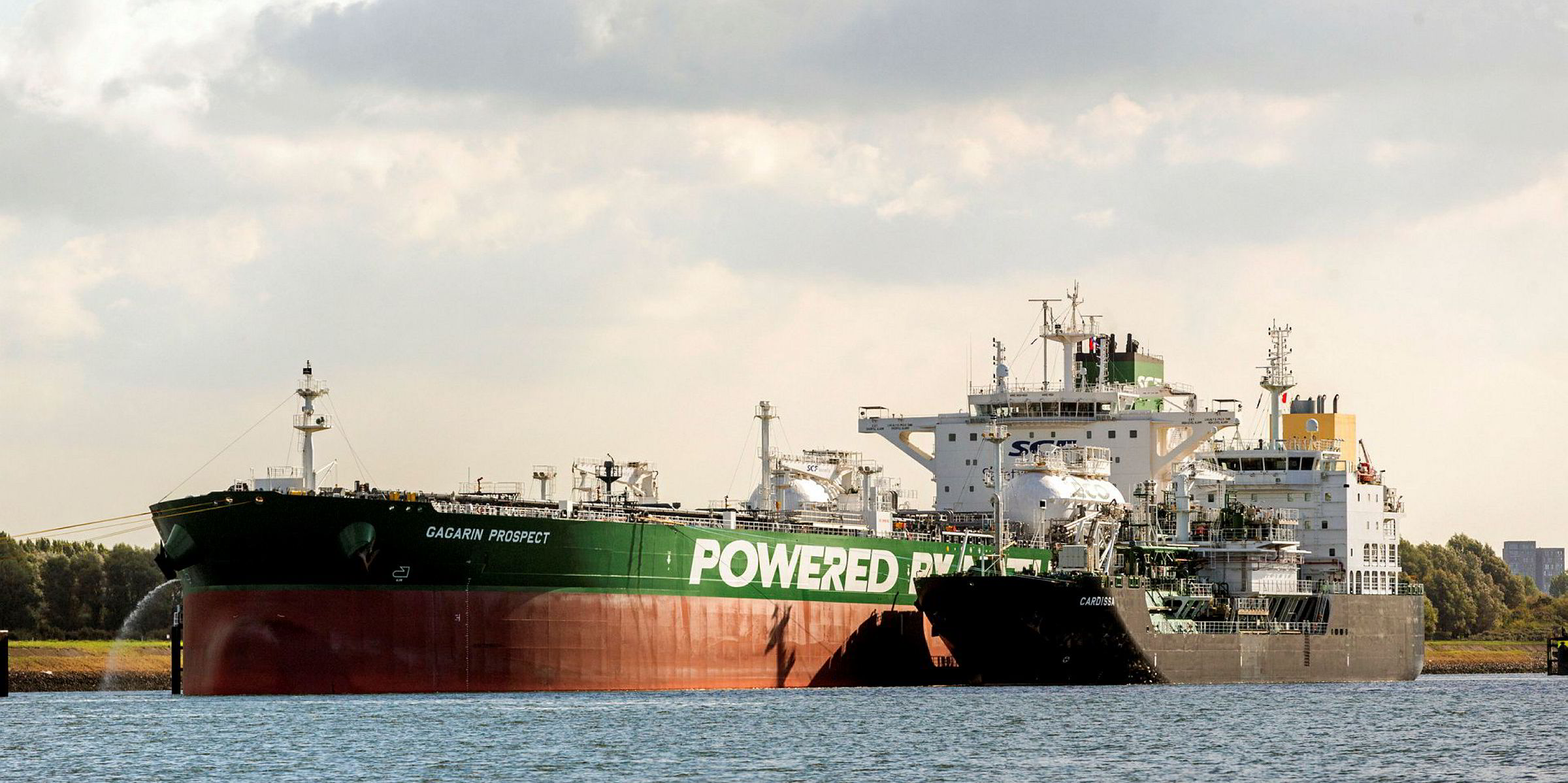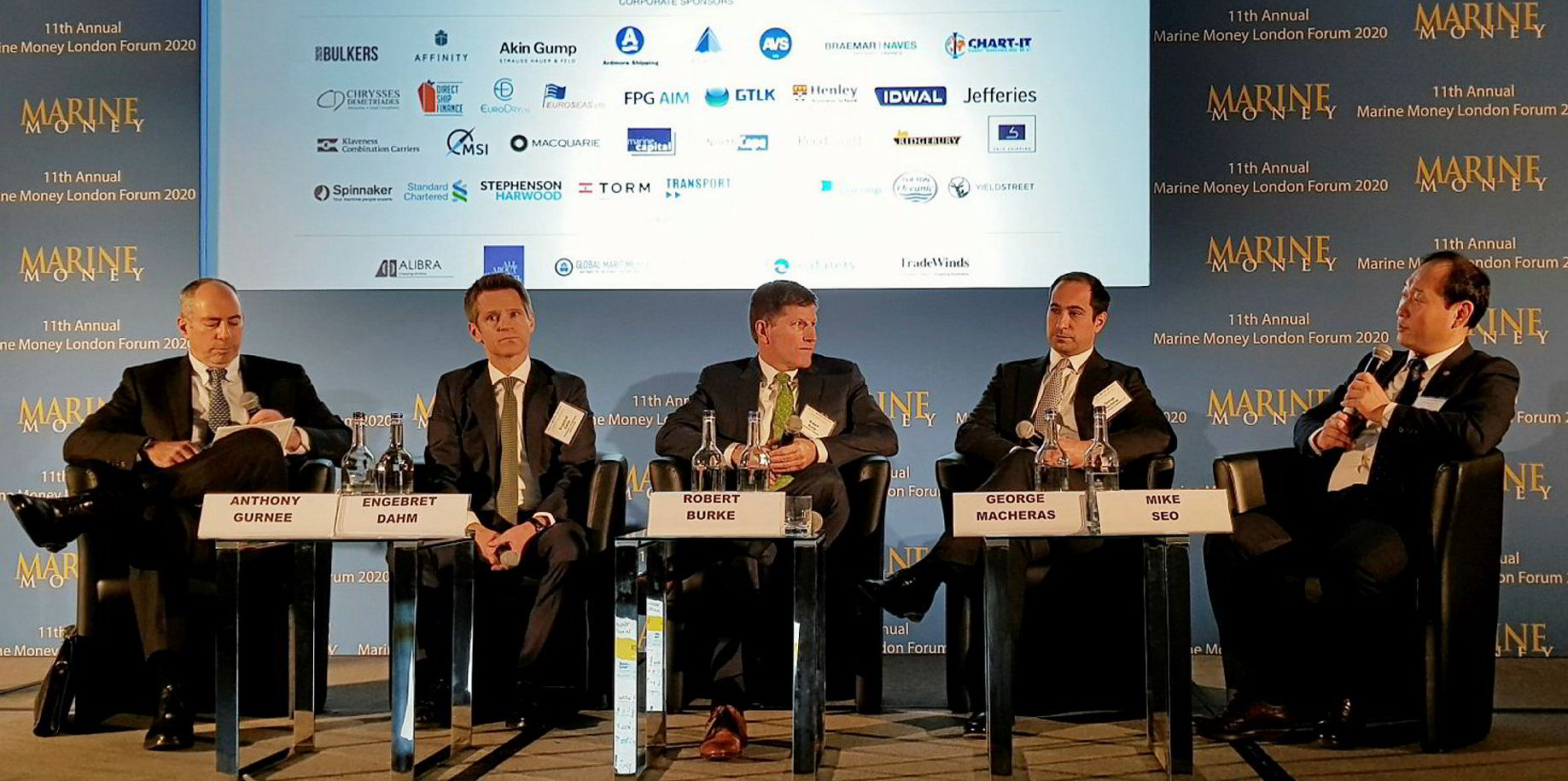Shipping may need to explore concepts such as sector coupling and modular engine rooms if it is to find a route to reach 2050 decarbonisation targets but LNG offers a good starting point, according to Schulte Group corporate director Angus Campbell.
Speaking at the IQPC Global LNG Bunkering Summit in Amsterdam, Campbell said shipping does not always need to “go it alone”.
He floated the idea of sector coupling — where energy consuming sectors share infrastructure costs — as a route to developing an e-hydrogen economy.
Acknowledging the dilemma facing shipowners over what type of vessels to order, he said owners could look at building ships that can be adapted or modified as technology choices evolve.
Electric motors may be the bridging technology, Campbell said.
“In future, perhaps we need to design a ship that has electric propulsion, and has a modular engine room and storage area for fuel, whatever that might be in the future,” he said.
Campbell, who revealed that Schulte is looking at 12 different pathways to 2050, said shipping is now firmly seen as part of the value chain.
He said IKEA is looking for “climate-positive ocean transportation”, while major freight forwarders are running carbon scoreboards and using more efficient ships to meet their sustainability goals.
“We’re in a different world now,” he said.
LNG is a bridging solution between the hydrocarbon and hydrogen economies that enables shipping companies to act now, he said.
He added that it is available globally, the technology is mature, the cost of natural gas is competitive and, as a cleaner fuel, it also improves ship maintenance costs.
We shouldn’t let the perfect be the enemy of the good
Angus Campbell
He said LNG bunkering infrastructure is developing rapidly and the industry is working to reduce methane slip, which is going to become a big issue.
Compared with other fuels capable of decarbonising shipping, he said LNG has a distinct advantage as it has established infrastructure in place that can be repurposed for LNG bunkering.
“LNG has an amazing starting point,” he said.
“People question whether LNG is the right way to go,” Campbell said, but added that it does not help companies' sustainability goals to do nothing.
“We shouldn’t let the perfect be the enemy of the good.”







